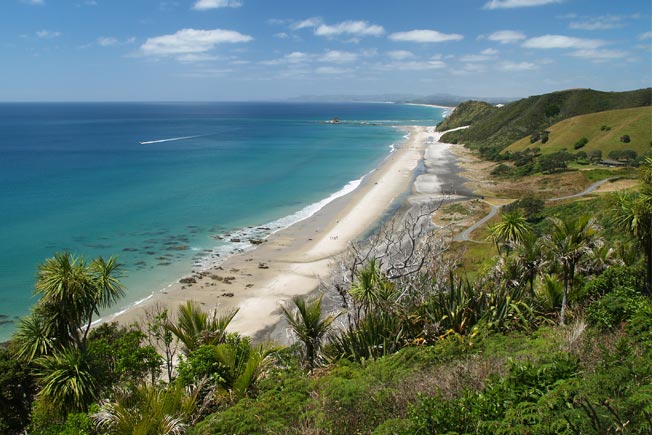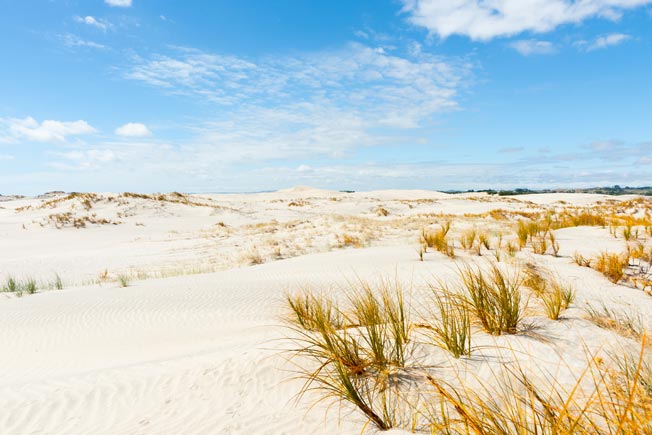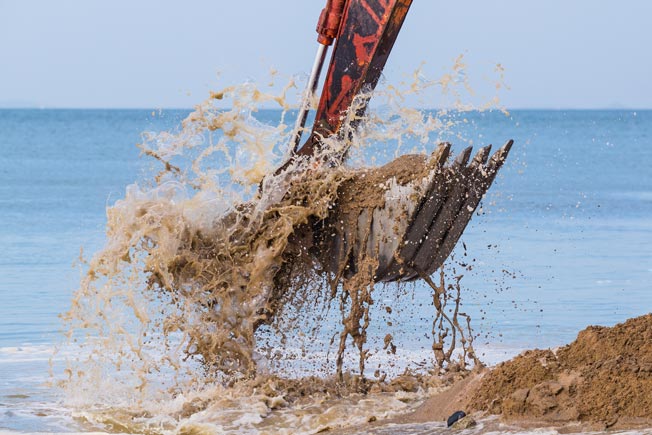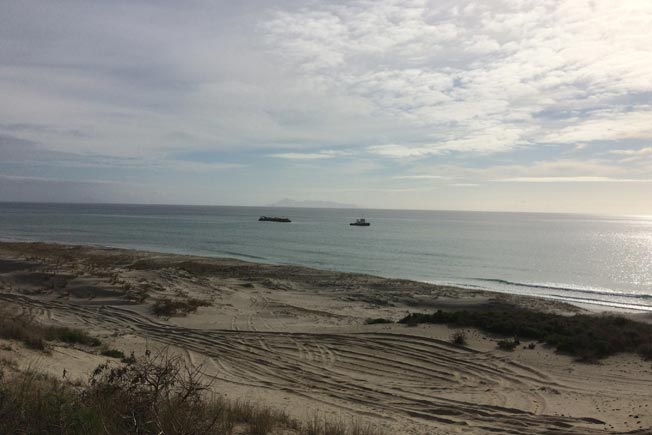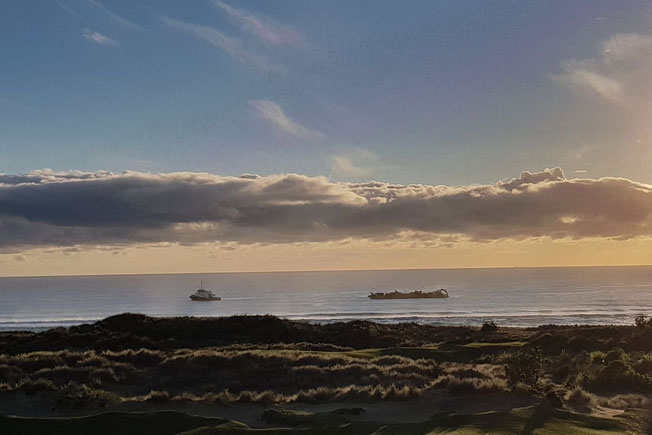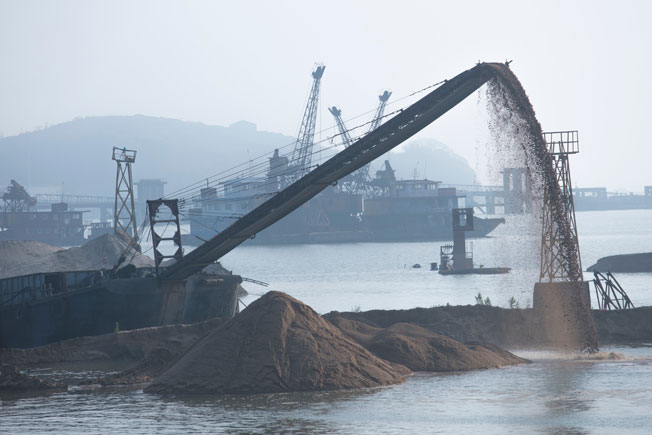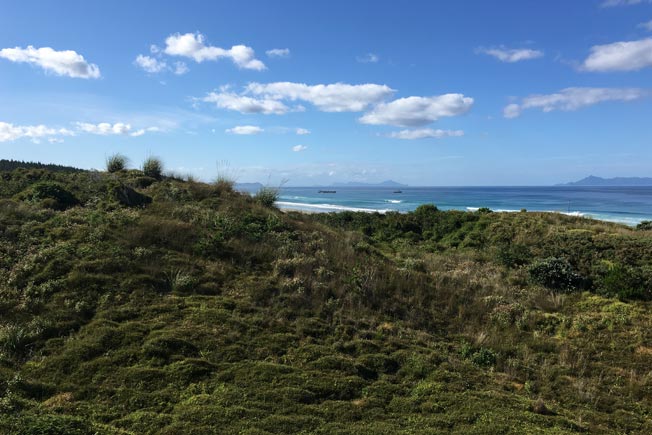To: Auckland Council
Submitter: Friends of Pakiri Beach Incorporated
- This is a submission by Friends of Pakiri Beach Incorporated in relation to an Application by Kaipara Limited (Kaipara) for a resource consent coastal permit for offshore sand extraction in area offshore from Pakiri Beach (Application).
Friends of Pakiri Beach Incorporated
- Friends of Pakiri Beach Incorporated (FOPB) was incorporated in 2018 to protect and improve the Mangawhai-Pakiri coastal marine area and its environments. FOPB is constituted to represent the interests of the residents of Pakiri and Tomarata and users of the Mangawhai-Pakiri embayment in resource management and environmental matters.
- FOPB have previously requested that the Kaipara Application be heard in a joint resource consent hearing with the recently lodged application for near-shore sand extraction in closer proximity to Pakiri Beach by McCallum Brothers (McCallum Consent).
- FOPB is not a trade competitor for the purposes of section 308B of the Resource Management Act 1991.
Resource Consent details
- The Application, if granted, will replace resource consent 20795 which is currently held by Kaipara. The Application seeks consent for the continued sand extraction in the Outer Hauraki Gulf for a period of 20 years.
- The sand extraction activity is a discretionary activity.
Opposition to the Application
- FOPB OPPOSES the Application for
the following reasons:
- Since the current consent was granted to Kaipara (2003), there have been major regulatory and policy changes relevant to renewal of the Kaipara application which have included considerable expansion of the level of environmental protection required to be considered by resource consent decision makers.
- Consequently, the new application by Kaipara cannot simply be regarded as a straight forward consent replacement exercise but instead requires a fundamental re-evaluation against a number of new environmental protection considerations.
- These new environmental protection
considerations for resource consent decision makers include:
- The New Zealand Coastal Policy Statement (2010).
- The zoning of the coastal marine area in the vicinity of Pakiri Beach under the new Auckland Council Unitary Plan (AUP), which sets out a variety of purposes including protecting natural character and landscape values as well as ecological, amenity, recreational and mana whenua values.
- The establishment under the AUP of three new significant ecological areas (SEAs) within the Pakiri Beach area, for improved protection of nationally and regionally significant seabirds and native plants.
- Two new outstanding natural landscape AUP overlays applying to the Pakiri Beach area – designed to improve environmental protection of the immediate onshore and offshore areas of the beach, as well as the dune system.
- Recognition in the AUP of two important surf breaks (Pakiri Beach North and South) which require decision makers considering resource consents for coastal activities to consider potential effects on the surf breaks and protect them.
- Specific obligations to consider cultural values and engage with mana whenua. In this respect it is noted that cultural impact assessments from Te Uri o Hau and Ngāti Manuhiri have been “sought” by the applicant by not “received” at the time the application was lodged.
- Preparation of a Marine Spatial Plan for the Hauraki Gulf Marine Park in 2017/18.
- The above list of new resource consent decision making requirements and considerations is not exhaustive but illustrates that an entirely new approach to decision making is now required, which makes careful consideration of a wide range of new and revised environmental protection considerations particularly relevant.
- The AEE lodged with the Application represents a reasonably careful effort to consider most of the relevant environmental protection considerations. However, generalised and untested consultant opinions on such an important range of essential issues needs to be open to more detailed explanation and scrutiny in a full and comprehensive hearings process. Such a process will ensure the relevant environmental obligations and considerations including those noted in 7(c) above are fully and properly evaluated by independent decision makers.
- Concurrent with the Kaipara application to mine sand in an area offshore from Pakiri Beach, there is another application to remove sand by McCallum Bros (which has yet to be notified) closer to the Pakiri Beach shoreline. Given the emphasis on environmental protection noted above, it is essential that any potential cumulative or potentially overlapping environmental effects are considered together – in an integrated manner – by resource consent decision makers.
Kaipara seeks consent to remove 150,000 m3 of sand per annum and McCallum Bros 76,000 m3 per annum. The combined potential effects on the Pakiri Beach environment, and values of annually removing this volume of sand, requires careful consideration in a joint hearing.
- The value of sand to the Auckland construction industry stated in the Application is recognised. However, given the potential effects of the two combined sand extraction operations, resource consent decision makers also need to evaluate whether other sources of construction sand are available which do not involve the range of potential environmental effects arising from continued seabed extraction.
- The Hauraki Gulf Marine Park established by statute in 2000 includes the Pakiri Beach environment. The recently developed principles and policies for safeguarding the future of the Park must also be carefully considered by resource consent decision makers. A recently completed Marine Spatial Plan for the Park also has particular relevance to environmental protection considerations throughout the Park area – including Pakiri Beach.
- A crucial consideration in assessing the potential environmental effects of granting the Kaipara application is the effect of proposed sand removal on coastal processes affecting the physical structure and stability of Pakiri Beach dunes, beach and foreshore areas. It is noted that the technical report prepared on this issue by Beca in support of the application is qualified as being based on a “desk top study of information provided by Kaipara” and some associated research. It is of concern that such a potentially important aspect of assessing environmental effects has not been the subject of a far more comprehensive investigation in the field.
Similarly, the Bioresearches ecological report supporting the Kaipara application states: “Before and after comparative data on benthic biota and sediment grain size characteristic from the current consented area was not available with which to assess any potential effects.” Given the significance of potential ecological impacts, a more comprehensive ecological investigation would appear essential.
- Any consent application of this type must also
consider the necessary safeguards that need to be detailed in the proposed
environmental management plans and conditions governing operations of the
resource consent to ensure:
- consistent and independently verifiable compliance with proposed dredging volumes and boundaries and other conditions. In this regard the hearing process will provide the opportunity for decision makers to independently verify past compliance with the present resource consent by Kaipara with respect to permitted sand extraction volumes and resource consent boundaries;
- timely publicly available information on environmental management, monitory and compliance related to the exercise of the consent; and
- crucially that there are clear processes and obligations to closely monitor compliance and potential effects and, if warranted, order temporary or permanent cessation of sand mining in the event of persistent non-compliance or unexpected or unpredicted adverse environmental effects.
- FOPB seek the following decision from the consent
authority:
- The Application be declined unless it can be clearly demonstrated by the Applicant that the range of potential environmental effects (including any cumulative effects) are comprehensively addressed.
- In the event that the Application is not declined, that any resource consent for seabed extraction of sand includes comprehensive and rigorous environmental management, monitoring and enforcement conditions consistent with paragraph 14 above. These conditions should also include a mechanism which enables the consent authority to order cessation of sand extraction operations in the event any resource consent conditions are not strictly complied with, or if any adverse environmental effects prove to be greater than expected or predicted.
- That the Kaipara Application be considered jointly with the McCallum consent application so that any potential for cumulative or overlapping environmental issues can be fully assessed by relevant decision makers.
Hearing
- FOPB wish to be heard in support of its submission.
- If others make a similar submission, FOPB will consider presenting a joint case with them at a hearing.
- Pursuant to section 100A of the Resource Management Act 1991 I request that you delegate your functions, powers, and duties required to hear and decide the application to one or more hearings commissioners who are not members of the local authority.
| DATE: | 4 June 2020 | |
| Friends of Pakiri Beach Incorporated |


